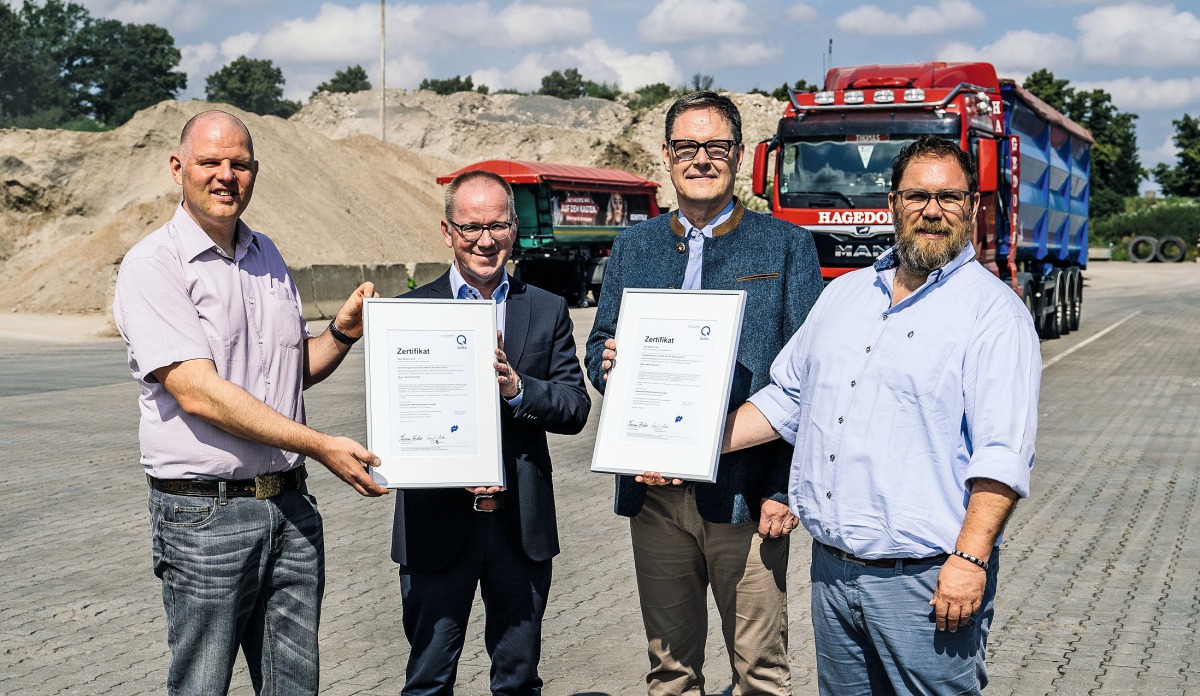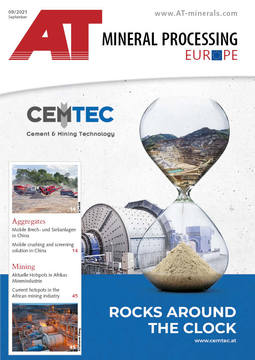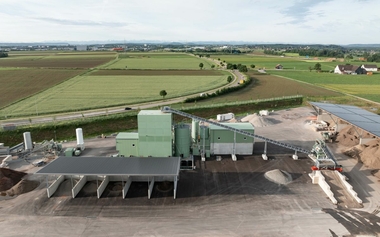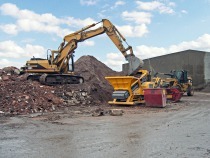Gütersloh recycling centre receives QUBA certification for sustainable disposal
Use of secondary building materials simple and legally secure
 From left to right: Daniel Rutte, Quality Supervision QUBA Qualitätssicherung Sekundärbaustoffe GmbH; Alfred Winkelmann, Managing Director Gütersloher Wertstoffzentrum GmbH (GWG); Dr. Klaus Mesters, Managing Director KM GmbH für Straßenbau- und Umwelttechnik; Thomas Fischer, Managing Director QUBA Qualitätssicherung Sekundärbaustoffe GmbH
From left to right: Daniel Rutte, Quality Supervision QUBA Qualitätssicherung Sekundärbaustoffe GmbH; Alfred Winkelmann, Managing Director Gütersloher Wertstoffzentrum GmbH (GWG); Dr. Klaus Mesters, Managing Director KM GmbH für Straßenbau- und Umwelttechnik; Thomas Fischer, Managing Director QUBA Qualitätssicherung Sekundärbaustoffe GmbH
© Hagedorn
Qualitätssicherung Sekundärbaustoffe GmbH (QUBA) is a joint project of the Bundesverband Sekundärrohstoffe und Entsorgung e.V. (German Federal Association for Secondary Raw Materials and Waste Disposal – bvse, the German Demolition Association e.V. (DA) and the Central Association of the German Construction Industry (ZDB).
Managing Director of QUBA Thomas Fischer explains that the building materials produced comply with the currently applicable building and environmental guidelines. The quality features, in terms of sustainability and the Recycling Management Act, include the harmless, proper recycling of the building materials. The QUBA quality seal will make it easier for builders, architects and construction companies to recognise suitable building materials for the areas of application in the future.
External monitoring at the GWG is carried out by KM GmbH für Straßenbau und Umwelttechnik from Bochum, a long-standing partner of the Gütersloh Recycling Centre. Among other things, KM GmbH is involved in the preparation of independent expert reports on the possible applications of recycled building materials in road construction and earthworks.
Today, construction waste can be processed to a very high standard with the help of state-of-the-art technology. At this point, bvse Managing Director Stefan Schmidmeyer dispelled the prejudice that “you don’t know what quality you’re going to get with secondary building materials”. The recycled building materials in particular are subject to very strict quality control and certification. In some cases, the standards are even higher than for primary raw materials. When the QUBA seal is awarded, not only the environmental compatibility but also the construction technology of secondary building materials is checked, so that it becomes clear which materials the secondary building material is made of and which environmentally relevant classification exists in each case.
The goal of QUBA is to create a functioning market for secondary building materials. Here, primary and secondary building materials should have equal rights and demand and use should take place under the same conditions. The RAL quality mark for recycled building materials of the BGRB, which has already existed for 37 years, was replaced by the QUBA quality mark on 1 June 2021. The background is, among other things, the creation of a large, common quality seal. The final transition is to be completed by the end of 2021.
The GWG as a recycling specialist
The award-winning GWG is a company of the Hagedorn Group based in Gütersloh and operates throughout Germany as a disposal and recycling company. Every year, more than 750 000 tonnes of recyclable and secondary construction materials are traded on the 50 000 m² GWG site. With sophisticated material flow management, the majority of the waste is recycled. In addition to cost savings, this serves in particular to ensure sustainability in practice.






